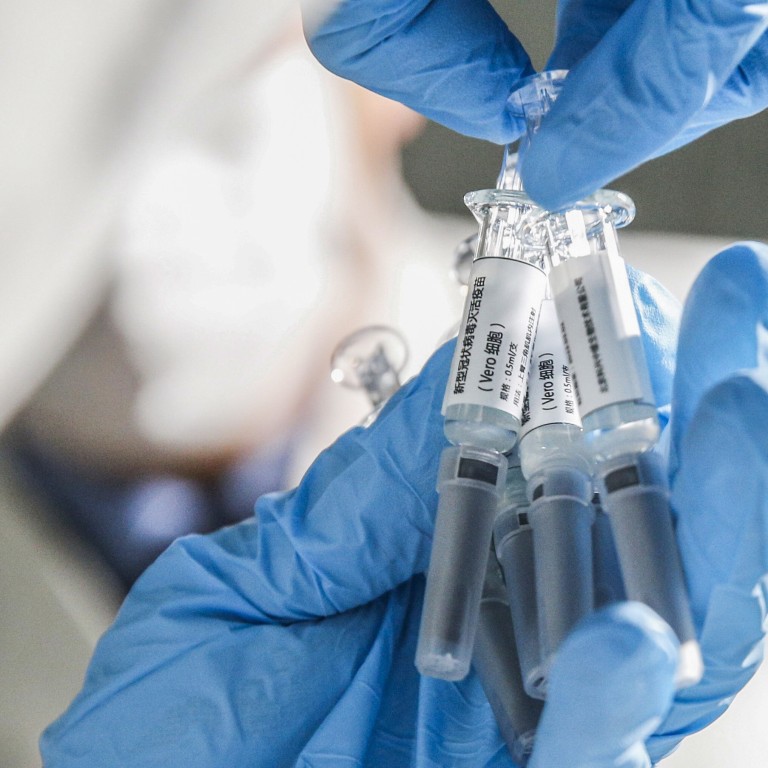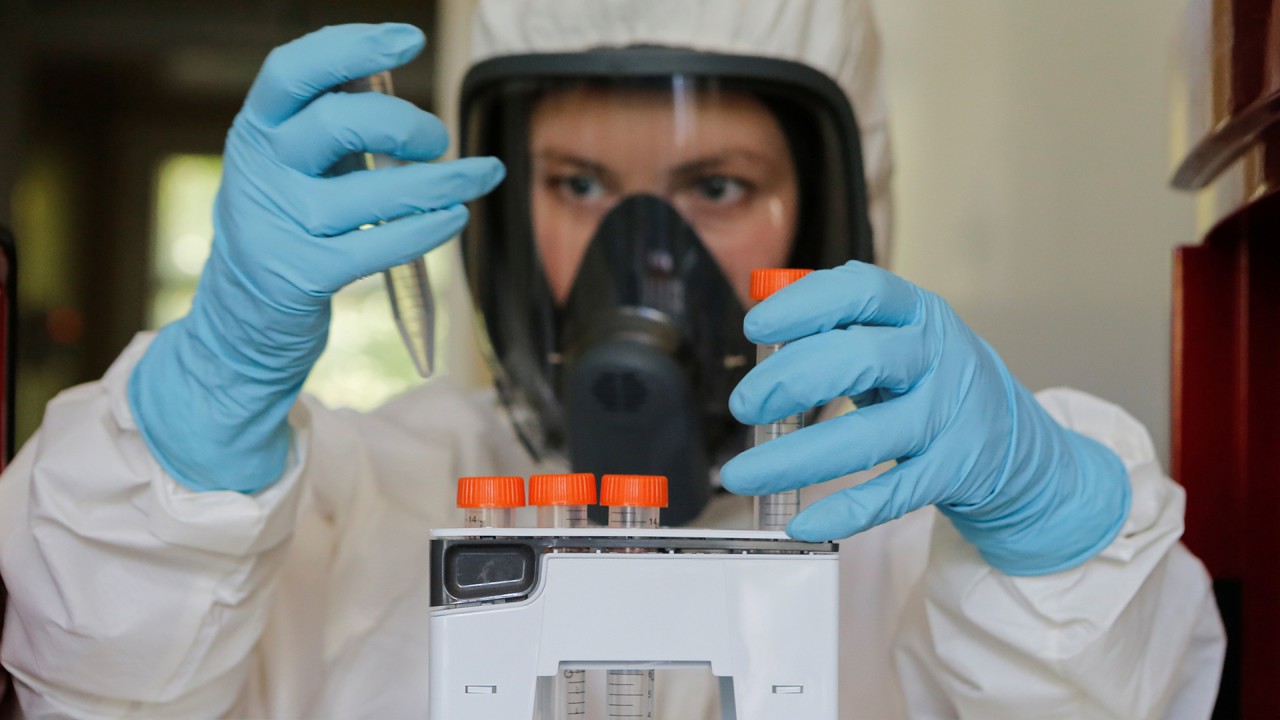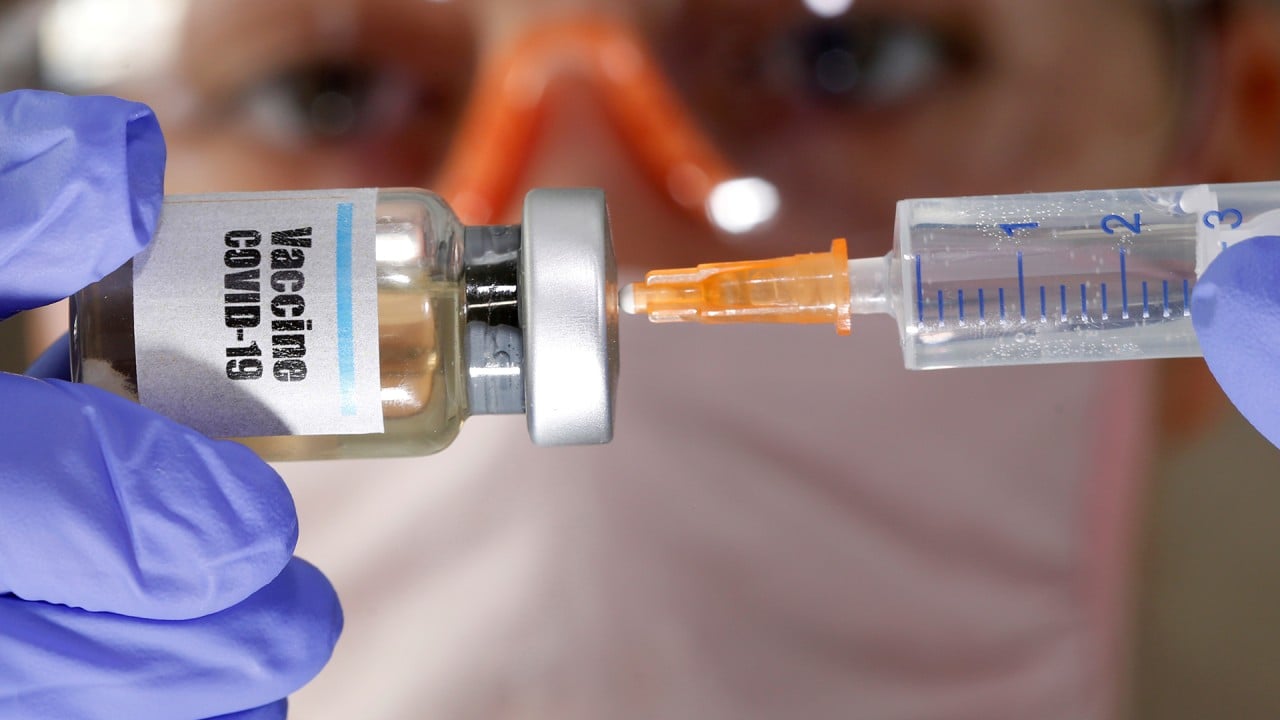
Coronavirus: Chinese vaccine giant quotes higher price for doses
- Sinopharm chief says two-shot regimen will cost around US$145 and is expected to become available in December
- Oxford University and AstraZeneca say their candidate will be about US$4 per dose when sold to the government
It is not clear if Liu was referring to the retail or wholesale price but the figure is so far the highest of those quoted so far.
Some pharmaceutical giants including AstraZeneca and Johnson & Johnson have stuck to the traditional non-profit principles for pandemic vaccines and cited a low price for their vaccine candidates. But they are also heavily supported by the US and British governments.
WTO must ensure fair trade in coronavirus vaccine, says Nigerian candidate
Other developers including Moderna, Pfizer, and Merck have said that they expect a profit from their products.
Adar Poonawalla, CEO of the Serum Institute of India, reportedly said that the price of the vaccine they produced for the Oxford candidate would be below Rs1,000 (US$13) if sold in India.

02:03
Russia approves ‘world’s first’ Covid-19 vaccine, President Vladimir Putin says
US company Johnson & Johnson is offering its candidates at about US$10 per dose, with an agreement with the US government to provide 100 million doses.
Meanwhile, Pfizer chief executive Albert Bourla said the company would sell its vaccine for around US$20 per dose, The Wall Street Journal reported.
Pfizer and German pharmaceutical firm BioNTech signed a deal with the US government to supply 100 million doses of their mRNA vaccine candidates for US$1.95 billion. Bourla reportedly said the price for developing countries would be lower.
Hong Kong, Macau researchers to start clinical trials of Covid-19 vaccine
Moderna has quoted a relatively high price, reaching agreements with several countries for payments of between US$32 and US$37 per dose for its experimental coronavirus vaccine. It said the higher price was a result of small production.
It is not known if Covid-19 vaccines would be included in China’s mandatory and free immunisation programme or if they would be voluntary injections, with recipients footing the full bill.

06:17
‘Robust immune responses’ found in Covid-19 vaccine clinical trials point to 2021 release
Shanghai-based vaccine expert Tao Lina said he was surprised by Sinopharm’s pricing as it was much more expensive than those in the Western countries.
Tao said the prices indicated that China might not include the vaccines in its free programme.
“I am surprised by the prices. It is the priciest in the world so far,” Tao said.
World nowhere near herd immunity, says WHO as cases hit 22 million
“Since the outbreaks have been contained well in mainland China. The need for mass inoculation is not too pressing and it is possible that it might not be included under the free category.”
If the Chinese vaccines are not included in the free programme, county-level drug regulators would buy the vaccines and make it available on their vaccine lists, but members of the public would have to pay the full price, according to Tao.

